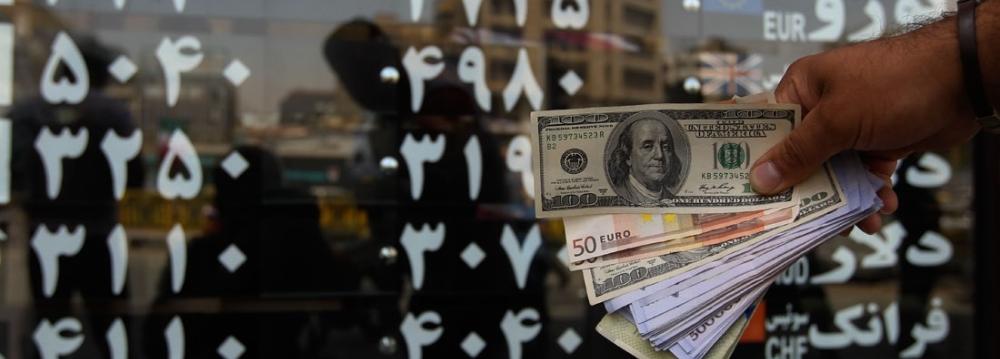Foreign exchange rates in Tehran’s market dropped below the support level of 120,000 rials on Wednesday as foreign currency rates continue to decline in the open market.
The US dollar was traded at 118,000, down from the previous day's 122, 000. But reports from the unofficial market suggested that the greenback was being traded as low as 111,500.
The euro was traded for 1370,000 rials and the UAE dirham for 33,000, both down against the rial.
Governor of the Central Bank of Iran Abdolnasser Hemmati told reporters on the sidelines of the weekly Cabinet meeting on Wednesday that market indices suggest that the forex market seems to be "moderating, which was a good thing.”
He went on to say that "The country should step into the economic boom and with the trend that we see in the inflation and forex rates, we hope things will get better.”
He also hoped that with waivers granted to some exporters in repatriating their currency, more foreign currency will be injected into the market, IRNA reported.
The CBI communicated details of the latest currency repatriation rules last week according to which earnings of up to €1 million are exempt from selling through Nima – the Integrated Forex Deals System -- launched by the government.
Hemmati told state TV last week that the stability in the foreign exchange market will continue and warned the people against hoarding foreign currency.
"We have special means to stabilize the market but cannot announce the details of such measures," Hemmati told prime time TV.
The domestic foreign exchange market entered serious volatile territory around the time the US announced that it will impose fresh sanctions on Iran. The Trump administration imposed new sanctions on November 5 aimed at “zeroing oil and gas exports” and said these sanctions would be the toughest yet on Iran.
The hawkish and rabidly anti-Iran secretary of state, Mike Pompeo, later announced that eight countries would be exempt from Iran’s sanctions for six months.
CBI Directive
Iran's central banks issued one more directive on Wednesday, urging exporters to sell their currency earning only to authorized banks and exchange shops.
The measures seek to help avoid abuse by currency dealers, the CBI said on its website. Based on the directive, the banking system, bank-affiliated exchange bureaux, and authorized exchange shops are ready to buy export currency earnings both in banknote and hawalas.
The banks and currency exchange shop are obliged to register the purchased currencies at SANA system in order to fulfill the exporters' commitment to returning the export earnings into the economic cycle.


